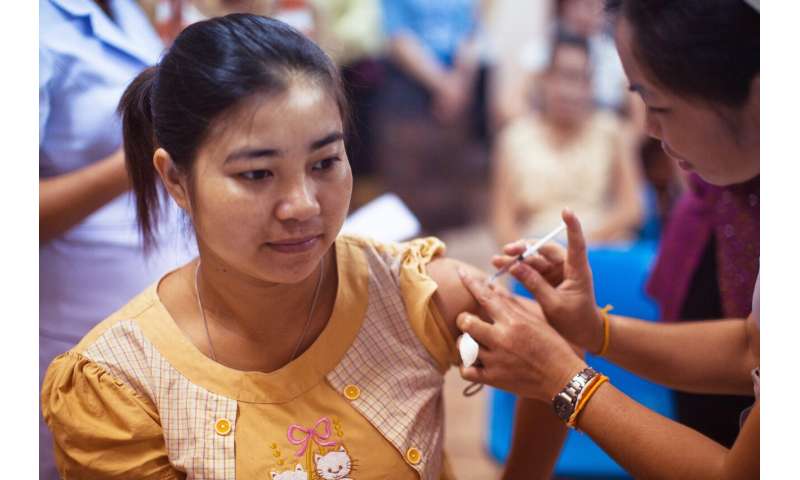
Influenza is a respiratory infection that can cause serious complications, particularly in young children. Getting a flu vaccine is the best way to prevent the flu and its complications. Even when the vaccine doesn’t completely prevent the flu, it may reduce the risk of serious illness requiring hospitalization. Recent research shows that the vaccine significantly reduces the risk of dying of the flu for both children with an underlying medical condition and healthy children.
Getting a flu vaccine is especially important this season because the flu and the coronavirus disease 2019 (COVID-19) cause similar common signs and symptoms. Flu vaccination could reduce symptoms that might be confused with those caused by COVID-19. Preventing the flu and reducing the severity of flu illness and hospitalizations could also lessen the stress on the health care system.
Depending on your child’s age and health, you might be able to choose between the flu shot and the nasal spray flu vaccine:
- Flu shot. Flu shots can be given to children 6 months and older. Side effects might include soreness, redness and swelling where the shot was given. A fever, muscle aches and headache also can occur.
- Nasal spray. The nasal spray flu vaccine can be given to healthy children 2 years and older. Side effects of the nasal spray in children might include a runny nose, wheezing, headache, vomiting, muscle aches and a slight fever.
- The flu vaccine can’t give your child the flu. The vaccine also doesn’t protect your child from COVID-19 or increase your child’s risk of COVID-19.
The number of flu vaccine doses your child needs depends on a few factors:
- 2 doses. If your child is younger than age 9 and is getting the flu vaccine for the first time or has only had one dose of the vaccine in total prior to July 1, 2020, plan for two doses given at least four weeks apart.
- 1 dose. If your child has had two or more flu vaccine doses given at least four weeks apart at any time before July 1, 2020, one dose is enough this year. The two doses need not have been given during the same season or consecutive seasons. Likewise, if your child gets the flu vaccine for the first time at age 9 or older, one dose is enough.
Keep in mind that it takes up to two weeks after vaccination to be protected from the flu. Also check with your child’s health care provider if:
- Your child isn’t feeling well. If your child has a moderate or severe illness, delay flu vaccination until he or she recovers. Nasal congestion might affect the delivery of the nasal spray vaccine.
- Your child has any medical conditions. The nasal spray vaccine isn’t recommended for children between 2 and 17 years old who are taking aspirin or a salicylate-containing medication. It also isn’t recommended for children ages 2 through 4 years old who have been diagnosed with asthma or have had wheezing in the past 12 months. The nasal spray vaccine isn’t appropriate for children who have weakened immune systems or the close contacts of children with severely weakened immune systems. Additional precautions for the use of the nasal spray include asthma in children age 5 and older or a serious condition, such as lung disease.
- Your child had a severe reaction to a previous flu vaccine. The flu vaccine isn’t recommended for anyone who had a severe reaction to a previous flu vaccine. Check with your child’s health care provider first, though. Some reactions might not be related to the vaccine.
- If your child has an egg allergy, he or she can still receive the flu vaccine.
Source: Read Full Article